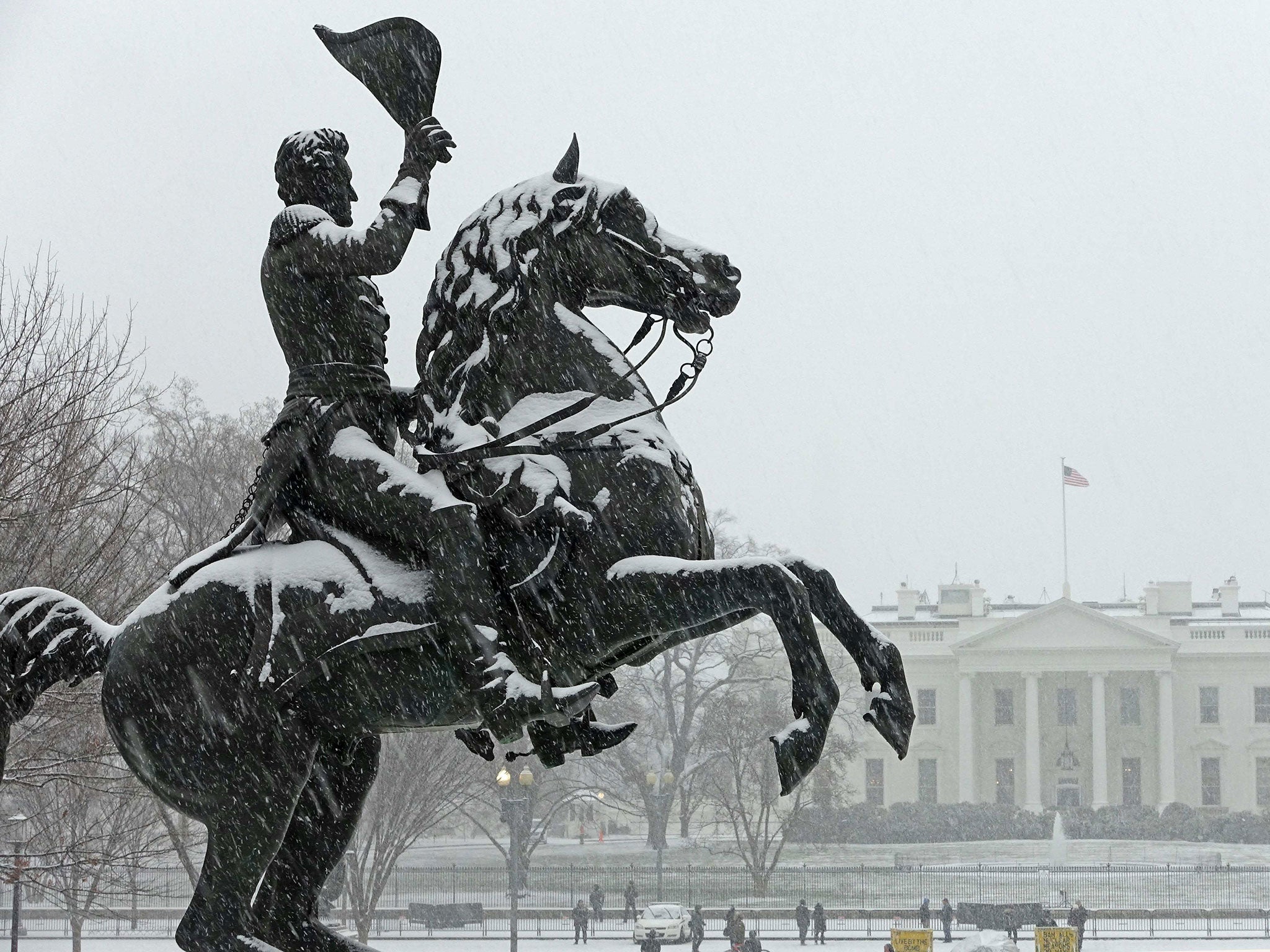Democratic Party of America: A brief history of the venerable party that has provided 15 out of 44 US presidents
The period of its greatest ascendency, and greatest successes, was the middle third of the 20th century

America’s Democrats vie with Britain’s Conservatives for the title of the world’s oldest political party. It was founded in 1828, when its first standard-bearer, Andrew Jackson, Tennessee’s “Old Hickory”, won the White House. It has has now provided 15 out of America’s 44 presidents.
They have included some of the greatest – Franklin Roosevelt, Harry Truman and Woodrow Wilson – and some of the worst. Notable among the latter are James Buchanan and Andrew Johnson, predecessor and successor of the Republican Abraham Lincoln. Buchanan failed to prevent the South’s secession which led to the Civil War, while Johnson made a mess of the Reconsruction that followed.
The period of the party’s greatest ascendency, and greatest successes, was the middle third of the 20th century. FDR’s landslide victory over Herbert Hoover in 1932 was not only among the Democrats’ most sweeping presidential triumphs, exceeded only by his landslide 1936 defeat of Alf Landon, and Lyndon Johnson’s rout of Barry Goldwater in 1964. It was also arguably the most important watershed election in American history.
Forged in the depths of the Great Depression, FDR’s New Deal remains the cornerstone of America’s modern welfare system. He built a vast Democratic coalition of liberals and intellectuals, Catholics, unions and the conservative South and West. In 1932, Democrats also made massive gains in both the House and Senate.
Victory in the Second World War sealed America’s position as the richest and most powerful country on earth. Truman used that power wisely, laying the foundations of victory in the Cold War with the creation of Nato and containment of the Soviet Union.
The final two Democratic presidents of that golden age were John Kennedy, cut down just when his presidency was showing real promise, and Lyndon Johnson, whose reputation may be forever scarred by Vietnam, but who turned civil rights for blacks from aspiration into reality.
That latter achievement also transformed the Democratic Party. Whatever the authenticity of LBJ’s alleged remark to an aide when he signed the 1964 Civil Rights Act – that “with this we have lost the South for a generation” – that is precisely what happened. The party of slavery had become the party of civil rights, and America’s political map was gradually redrawn.
Henceforth, Democrats were increasingly identified with social liberalism and interventionist government, with strong support from women and minorities. Their strongholds became the Northeast, the old industrial belt of the upper Midwest, and California and the West Coast, all regions that once were predominantly Republican.
Bill Clinton, from Arkansas, nudged the party back towards the centre, and won a few Southern states in 1992 and 1996. But, in 2000, Al Gore, a southerner from neighbouring Tennessee, could not carry a single state of the old Confederacy.
In the 2008 election – probably a high-water mark for today’s Democrats – Barack Obama fared a little better, winning Virginia and North Carolina, and the quintessential swing state of Florida. In today’s polarised and multi-cultural America, Democrats undoubtedly have the demographic edge over Republicans. The trick now is getting those black and minority voters to turn out on election day.
Subscribe to Independent Premium to bookmark this article
Want to bookmark your favourite articles and stories to read or reference later? Start your Independent Premium subscription today.

Join our commenting forum
Join thought-provoking conversations, follow other Independent readers and see their replies